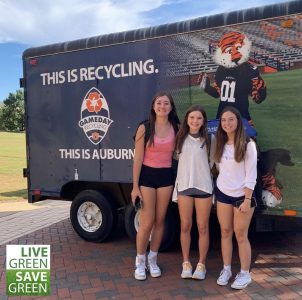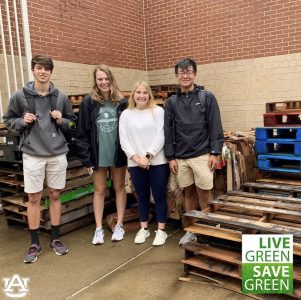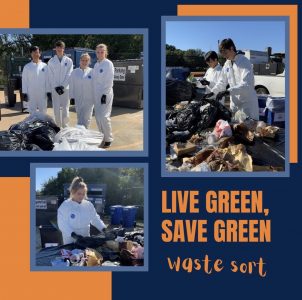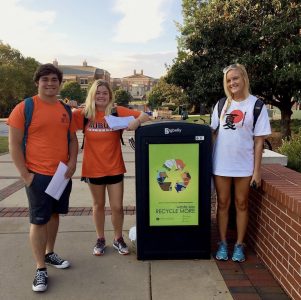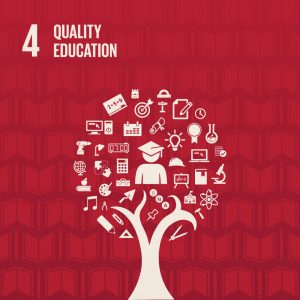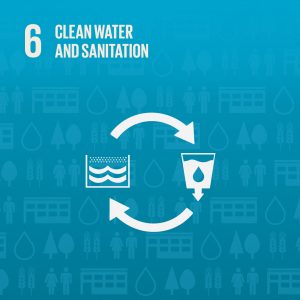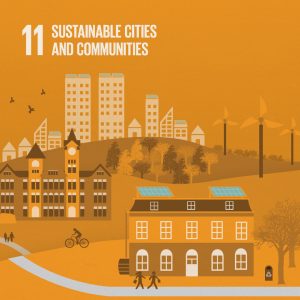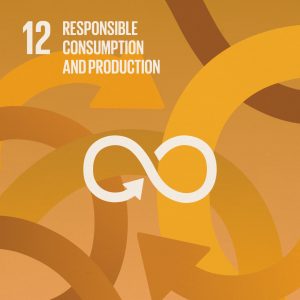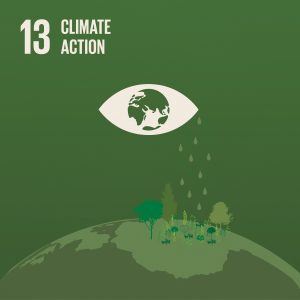by Camille Colter, Office of Sustainability
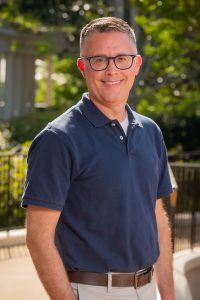
Photo credit: AU Photographic Services
As most of us know, the first year of college can be scary. The First Year Experience (FYE) Office helps students in this transition. FYE houses the orientation programs Camp War Eagle and Successfully Orienting Students, as well as the academic initiatives of Learning Communities and First Year Seminars (FYS). One of those FYS is Live Green, Save Green taught by Dr. Chris Wyckoff, the Assistant Director of Academic Initiatives for FYE.
Chris started at Auburn in 2004 as an Academic Advisor for the College of Architecture, Design, and Construction. He then transitioned to FYE and began teaching FYS courses. In 2005, along with retired textile engineering professor Dr. Gisela Buschle-Diller and retired biology professor Dr. Sharon Roberts, Chris developed a first-year seminar class that is now called Live Green, Save Green.
Live Green, Save Green is a passion project for Chris. He hopes the course will help first-year students gain information literacy and confidence in their ability to make change. The course is associated with the interdisciplinary (any major) learning community, Live Green, Save Green, that first-year students can join. As students take the FYS course, they are simultaneously enrolled in Natural Resource Management (NATR 2050). The two courses run in parallel but are not integrated, so the progression and information differ.
Live Green, Save Green consists of discussions, readings, and activities that follow major topics of history, current events, and action steps relating to sustainability. The course covers information associated with resources, environmental management, buildings, landscape, architecture, shopping practices, food, and business. The course has students pick a semester-long project that ends with a presentation to the class. Students can choose to participate in one of the following:
- A book club where students read The Upcycle by William McDonough and Michael Braungart and participate in group discussions. Students also travel to Interface to tour the facility;
- Learn about local food sourcing by having a backstage tour of both Parkway Farmers Market and the Community Garden;
- Work with Waste Reduction and Recycling to complete a week’s worth of waste audit in a campus building; or
- Work with Alabama Water Watch to become a trained Water Quality Monitor and apply the lessons learned.
- Students in the Waste Reduction and Recycling project. Photo credit: Joan Hicken.
- Students in the Waste Reduction and Recycling project. Photo credit: Joan Hicken.
- Students sorting waste with Waste Reduction and Recycling. Photo credit: Joan Hicken.
- Students in the Waste Reduction and Recycling project. Photo credit: Joan Hicken.
Chris is invested in sustainability because “we’re all riding this rock together.” Our decisions impact everyone on the planet, so every person matters in making the world more sustainable. His biggest impact is made by teaching students. He loves that he can empower others to make changes by giving them the information to do so. He encourages all his students to vote as well by providing extra credit for those who register to vote.
Apart from academics, Chris lives in a community of Energy Star homes. Energy Star homes are constructed with environmentally friendly materials, have energy-efficient appliances and heat pumps, and they know when you aren’t there, then alter the temperature and lighting accordingly. He also drives a hybrid vehicle, is a conscientious purchaser, and limits his meat intake.
Live Green, Save Green is a great way for first-year students to get involved with sustainability on campus and start the Sustainability Studies minor. The students in this FYS have seats saved for them in the Introduction to Sustainability (SUST 2000) course the following semester. They also receive credit for NATR 2050 that counts toward the minor. To learn more about the Live Green, Save Green course and other FYS courses, please visit the First Year Experience Office.
Learn about the SDGs & AU and our contributions related to this post.

